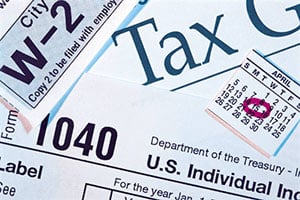What is Zombie Debt?
Zombie debt, also referred to as Stat debt or Out of Statute debt, refers to debt that is very old or no longer owed. Effectively, these debts have “come back from the dead” to haunt you again. Debt scavengers are debt collectors who purchase zombie debt from a source – the original creditor, a successor creditor who bought the original creditor’s debt, or even from another debt collection agency – often for pennies on the dollar, and who attempt to collect the debt from the debtor. I wrote an article about these scavengers that contains some very useful information entitled, “You Can Add Points to Your Credit Score by Beating the ‘Charge off Date’ Scam” . Another article I wrote entitled “Consumer Alert: Judges suspicious of the rising tide of lawsuits and garnishments” explained how some judges were growing suspicious of the number of scavenger lawsuits that were being filed. These scams and scammers are nothing new to me or my firm. I’ve warned my clients to take precautions with their credit scores and identity protection for many years.
In the article on my site entitled, “What you don’t know about “Charge off Dates” can hurt you”, I pointed out that once a debt has been in default (unpaid) for six years, the statute of limitations to collect the debt has expired. The creditor cannot file a suit to collect the debt once the debt is too old, as having been in default for six years. However, to trick you into thinking that the creditor has additional time to collect upon the debt, the creditor will (out of thin air) make up a phony date called the “charged off date”, and put that phony “charged off date” on your credit report as the date of default.
Debt Can Be Too Old To Be Collected on By Creditors
Sometimes, aged debts may be too old to properly serve as the basis for a creditor lawsuit to collect the debt in question. However, some creditors will still file a lawsuit on a too-old debt, hoping that you won’t realize that the debt is too old to support the lawsuit. The courts don’t seem to care about lawsuits filed to collect aged debt. That means that if you don’t file a response to contest the creditor’s suit, then the court will enter what is actually an improper judgment. The court expects you to be responsible enough to understand—or be represented by a qualified attorney who is knowledgeable on debt collection and aged debt practices—and if you don’t care enough to contest the suite, the court shouldn’t care either.
In addition to typical consumer and business debt, there are also some other types of debts like criminal fines or restitution which many not be subject to a statute of limitations that is as short as the time period for bringing suit on consumer and business obligations.
As you can see, it literally pays to obtain qualified legal advice about a particular debt that you owe is too old to be collected in a lawsuit. You should also be aware that statutes of limitation on aged debt can vary from state to state. If you’ve incurred a debt in the past in another state, protecting yourself with qualified legal advice is as important in those cases as it is in the state of Washington.
In the article on my site entitled, “What Happens if My Chapter 13 Bankruptcy Plan is Dismissed Because I Can’t Afford the Payments?”, I pointed out that your creditors will return if your Chapter 13 bankruptcy plan is dismissed in most cases. The deadline for creditors to file suit to collect a debt is six years after debtor breaches the terms of their debt contract by failing to make the payments that the debt contract obligated the debtor to make on time. Even if the debtor files bankruptcy during that six-year period, the deadline for the creditor to file suit to collect the debt is neither extended nor shortened due to the fact that the debtor was in bankruptcy during the six-year time period.
Zombie debts can stem from dealings with big creditors, not just smaller companies. In May of 2015, the New York Times reported
“Two of the nation’s biggest banks will finally put to rest the zombies of consumer debt — bills that are still alive on credit reports although legally eliminated in bankruptcy — potentially providing relief to more than a million Americans.
Bank of America and JPMorgan Chase have agreed to update borrowers’credit reports within the next three months to reflect that the debts were extinguished.
The move is a victory for borrowers whose credit reports have been marred as a result of the reported debts, imperiling their job prospects and torpedoing their chances of getting new loans.
The change by the banks emerged this week in Federal Bankruptcy Court in White Plains, where the two banks, along with Citigroup and Synchrony Financial, formerly GE Capital Retail Finance, face lawsuits accusing them of deliberately ignoring bankruptcy discharges to fetch more money when they sell off pools of bad debt to financial firms.
The lawsuits accuse the banks of engineering what amounts to a subtle but ruthless debt collection tactic, effectively holding borrowers’ credit reports hostage, refusing to fix the mistakes unless people pay money for debts that they do not actually owe.”
While it’s been over a year since the agreement was reached, if you were a customer of any of the banks mentioned in the article, and if your bankruptcy filing included a debt owed to one of those creditors over the period covered in the settlement described in the article, it pays to check your credit report to ensure that the debts that they promised to remove have in fact been removed from your credit report.
Items for Action:
Never ignore a lawsuit that has been filed against you for any debt, even an old debt that you don’t recognize.
Check your credit score at least once a year. The article on my site entitled, “Let me show you how to start a great annual tradition that can save you money and your reputation, and it’s free!” explains how to a get a truly free credit report once a year, and how to effectively dispute debts that you find on your report.
Beware! Some zombie debt is simply not yours. The debt might belong to someone with a similar name, or the debt could be the result of a creditor mistake. In some cases, debt that has been wiped from your credit record is sold to another debt collector that tries to bring it back to life and collect on it once again. Perhaps worst of all, zombie debt can result from identity theft.
If your Chapter 13 bankruptcy plan is becoming too expensive for you to continue as is, please call to arrange a meeting with us at our offices. We might be able to modify your Chapter 13 bankruptcy plan payments to something more affordable.
If you have incurred new debts in the interim, please call to arrange a meeting with us at our offices. After reviewing your situation, we may either file a new Chapter 13 case for you, or discuss conversion of your case to Chapter 7.
Quick Takes
The New York Times reports that the US Department of Housing and Urban Development announced today that
“A federal program that sold more than 100,000 soured mortgages to private investors at discounted prices is getting a major overhaul.
Changes announced by federal housing officials on Thursday follow months of criticism from legislators and housing advocates that the buyers of the loans have not done enough to keep struggling borrowers in their homes.
The housing officials said that private investment firms buying delinquent mortgages would have to consider reducing the total amount of money owed on a mortgage as part of potential modification to make a loan more affordable.”
“Edward L. Golding, principal deputy assistant secretary with the Department of Housing and Urban Development, said that the housing agency was ‘deeply committed to protecting struggling homeowners and making certain they have the greatest opportunities to avoid foreclosure and remain in their homes.’
Federal officials also said they would make it more difficult for private buyers to temporarily reduce the interest rate on a mortgage only to have it revert to the original terms after five years, a practice used by some private buyers.
The changes in the program are intended to address criticism that the sale of distressed mortgages — while resulting in better loan terms for some borrowers — did not come with specific directions outlining the steps the buyers should take to make the mortgages more affordable.”
My site contains many articles that explain the mechanics of foreclosure sales, avoiding foreclosure through bankruptcy, and related information that you may find useful. You can browse the articles at this link https://washingtonbankruptcy.com/tag/foreclosure/
The venerable Sports Authority brand may only appear when you’re watching NFL games held in Denver someday soon. According to news reports in the Wall Street Journal, Reuters, and other financial news sources, Dick’s Sporting Goods won the Sports Authority Brand Name in a bankruptcy auction on June 30th. According to the story on the Consumerist web site, “Buying the intellectual property of Sports Authority, as Reuters reports that Dick’s Sporting Goods has done, would allow Dick’s to open Sports Authority stores or an e-commerce site if it wanted to, but it probably won’t. Instead, purchasing the mailing list and loyalty card member information means acquiring some customer names, especially in areas where it doesn’t currently have stores. Buying the brand means that no one else can own it.”
While this isn’t in quite the same vein as our zombie debt article above, it goes to show that your financial information is quite valuable to big companies as well as criminals. The big company may use the data, including your past purchase history, to market products to you using the defunct company’s name, or in their own name, just as though you were a current customer. It pays to keep track of the mailing lists that you’re on, and to occasionally opt out of some mailings if you find that you aren’t reading the messages or no longer find them useful. We always respect your rights, and provide an opt out link on every newsletter that we send. We hope that you’ll find the information that we share valuable enough that you’ll remain a loyal reader for years to come.
We’re With You. All the Way Back.
If you find any of this confusing, please make an appointment to come in and discuss your situation. We are here to help you through your bankruptcy—before, during, and after the filing and completion of your case.










